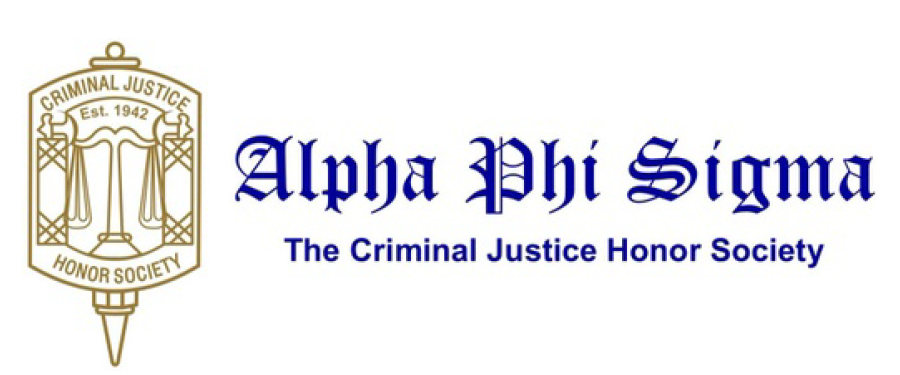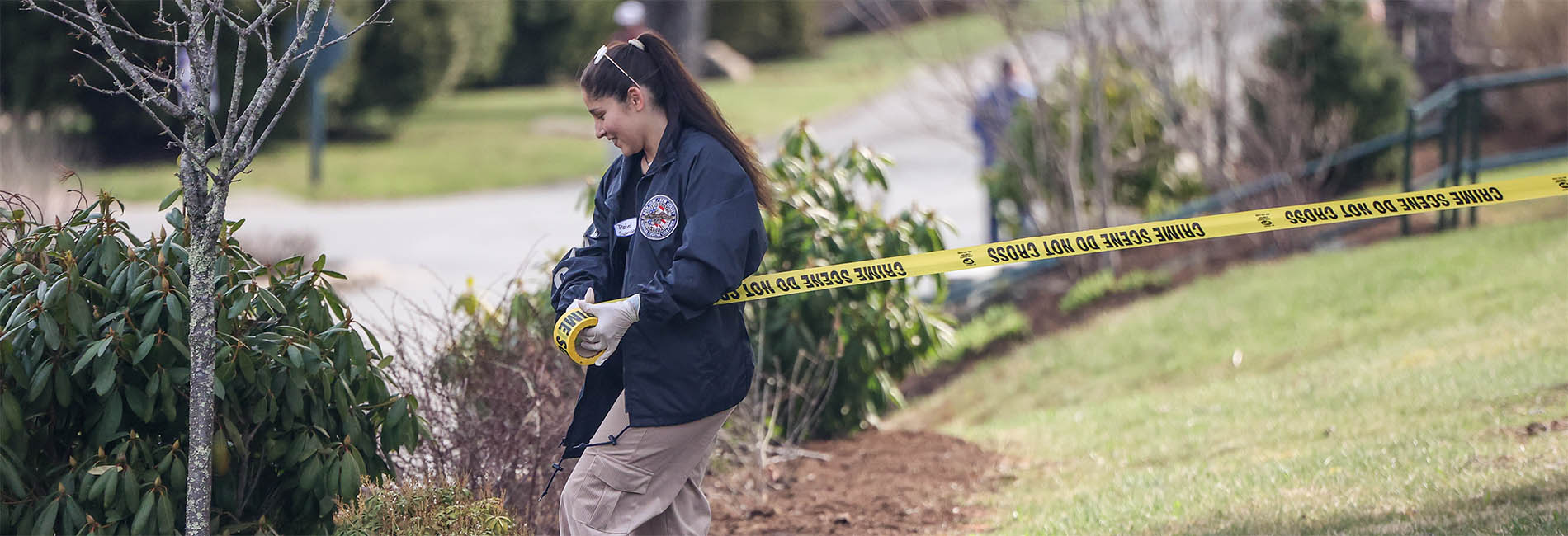Criminal Justice
BACHELOR OF ARTS/BACHELOR OF SCIENCE
The Criminal Justice program uses a social science perspective to study the nature and causes of crime and provides a comprehensive understanding of the United States criminal justice system.
You will benefit from a holistic, in-depth learning environment with numerous opportunities to put theory into practice through experiential learning. All instructors in the program bring a wealth of field experience to the classroom as well. The program will challenge you to view crime, law, and social problems from the perspectives of psychology, sociology, and the specialized criminal justice discipline. A required internship gives you hands-on experience and a chance to develop professional relationships.
The Senior Research Seminar is a capstone experience where you work collaboratively with faculty to conduct research on a topic of your interest and present your results to the college community.
Recent News

Senior Isaac Reyna gains field experience through summer internship with North Carolina State Bureau of Investigation
Read

"A room full of chaos": Criminal Justice students tackle immersive mock crime scenario to put law enforcement training in action
Read

Court is now in session: Criminal Justice students take over Avery County courthouse to get full judicial experience
Read
What You'll Study
You will have the opportunity to study many interesting topics in criminal justice including serial killers, criminological theory, criminal investigation and interrogation, prison culture and custody, careers in criminal justice, and more!
The curriculum is designed to give students the option of beginning a career immediately after graduation or going on to graduate or law school. The courses cover the many facets of the justice system, from criminal or victimization theory to the implementation of criminal justice frameworks around the world.
Specialization
-
Forensic Psychology Specialization
Students interested in gaining a deeper understanding of how human thought and behavior impact crime can pursue the Forensic Psychology specialization. The four courses required for completion are Serial Killers (CRI 466), Forensic Psychology (PSY 273), Abnormal Psychology (PSY 202), and Social Psychology (PSY 203). Choosing to specialize in forensic psychology shows that you're interested in this specific field and prepares you for the further education needed to become a forensic psychologist.
The specialization is only available to students pursuing a BA or BS in Criminal Justice.
Beyond the Classroom
Mock interviews are completed in our Careers in Criminal Justice course. Volunteers will offer feedback and suggestions on cover letters and resumes that you’ll perfect over the course of the semester.
In addition to mock interviews, a mock crime scene is conducted in our Criminal Investigation and Interrogation course. Students are assigned roles to play as if it were an actual crime scene. During this experience, you'll question witnesses, collect and process evidence, take crime scene photos, and more.
You'll also likely have the opportunity to visit a jail, prison, and/or court during your time in the program.
Each Criminal Justice student must complete an internship at some point during the program. Internships offer on-the-job training in the field of your choice and help you build important career connections.

Alpha Phi Sigma
The only criminal justice honor society accredited by the American of College Honor Societies, Alpha Phi Sigma recognizes the academic excellence of criminal justice students throughout the US, Guam, and Canada. The goals of the honor society are to promote scholarship, lifelong learning, professional training, and ethical responsibility for individuals in the criminal justice profession. To qualify for membership, students in the Criminal Justice major or minor must have at least a 3.2 GPA, be in the top 35% of their class, and have completed 45 credit hours in the program.
Similar Majors
After Graduation
Graduates of the program work in law enforcement and investigative agencies at the local, state and federal levels. Opportunities include correctional institutions, adult and juvenile probation and parole, victim's services, homeland security, private security and other human services-related fields. Additional careers include:
- Security and Investigation—Detective, Police Officer, Private Investigator
- Law—Judge, Lawyer, Paralegal, Local Government
- Public Safety—Probation Officer, Correctional Case Manager, Police Officer
- Government Agency—Homeland Security, Border Patrol, FBI, CIA, U.S. Secret Service
Career information is provided through Vault and O'Net. Current Lees-McRae students can see the full results on Vault using their student email and password.
Recent internships include:
- Avery Correctional Facility
- Maryland Bureau of Investigation
- Homeland Security
- Domestic Abuse Shelters
- Law Firms
- U.S. Marshals
- ATF
- Child Forensic Interviewing Agency
- State Bureau of Investigation
- Palmer, Alaska Police Department
- FEMA
Alumni Success
Detective/Investigator D.C. Metro Police
Resource Coordinator/Case Manager Developmental Disabilities program in Maryland
Enforcement Officer North Carolina Wildlife Resources Commission
Graduate Student Harvard Graduate School of Education
Graduate Student Radford University Graduate School
Graduate Student George Mason University Graduate School
Law Student Campbell School of Law
Law Student Elon School of Law
Law Student Charleston School of Law

Alumni Spotlight: Nicole Shapiro ’22
Capitol Police Officer with D.C. Metro Police
“I think the professors have been the most important and best part of my experience here at Lees-McRae. They really do care so much. Lees-McRae has given me a lot of tools to really set me up for success in a stressful environment like I will be experiencing at work, and has prepared me to work with others. I don’t think I would have necessarily gotten those things from a bigger university where you’re just a number."
Meet the Faculty
Jerry Turbyfill
Assistant Dean of Education and Social Sciences, Instructor of Criminal Justice
Derrick Lail
Program Coordinator and Instructor of Criminal Justice
Tracy Hoilman
Senior Instructor of Criminal Justice
